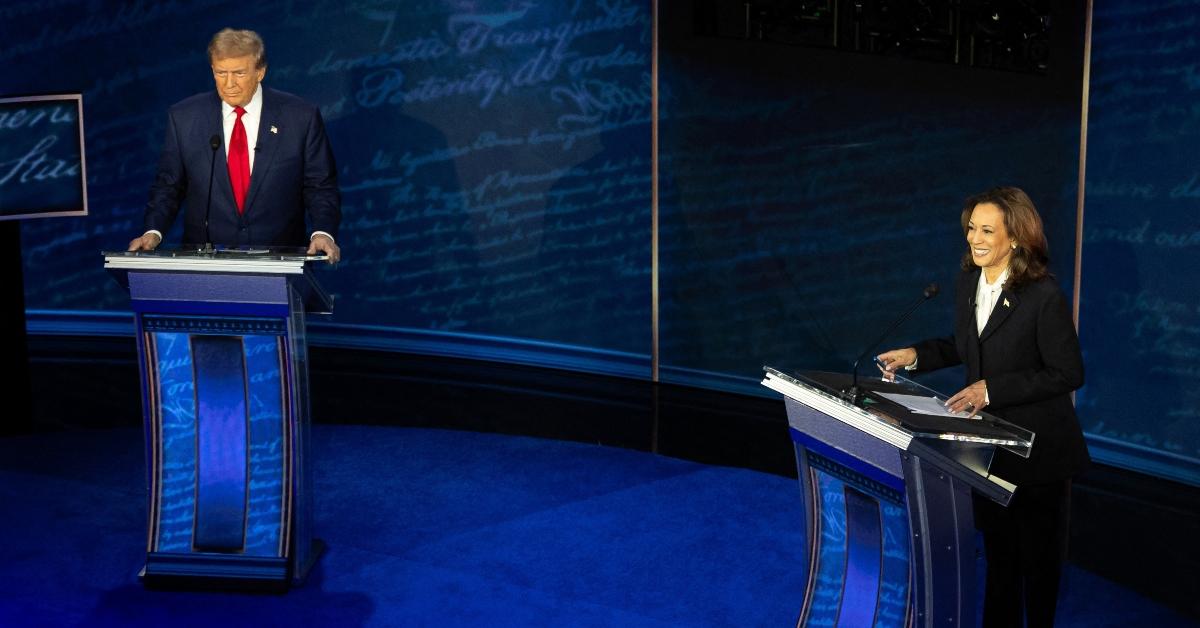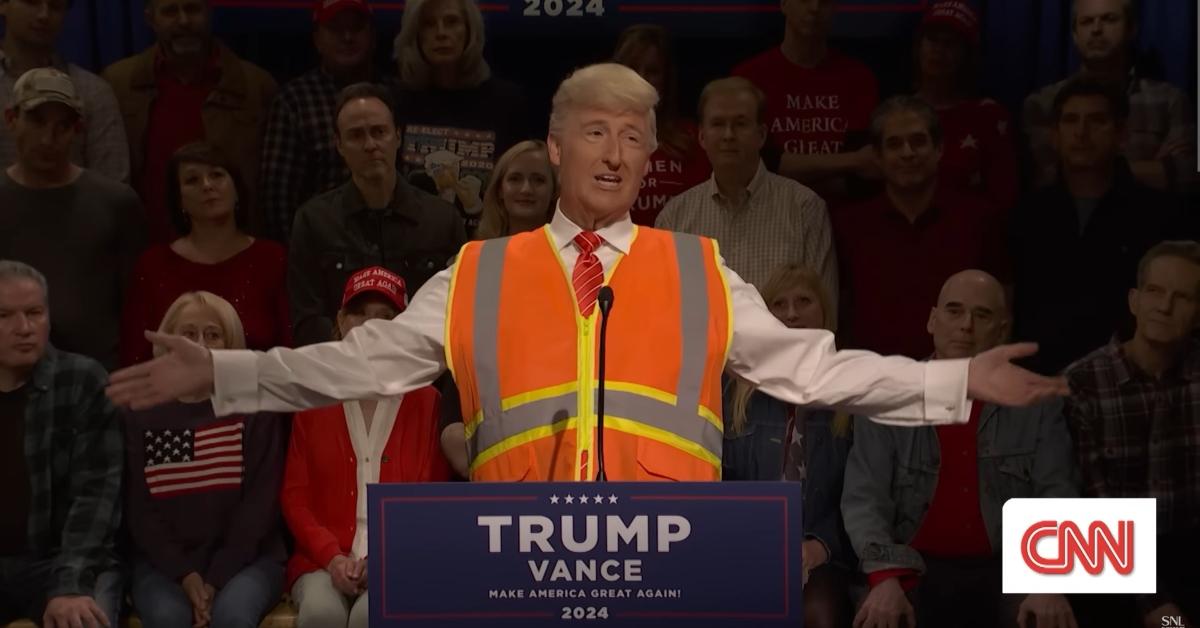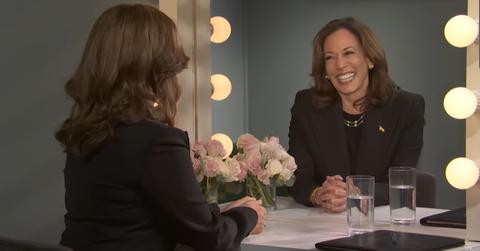What Is the "Equal-Time Rule" for Presidential Candidates? Harris 'SNL' Appearance Prompts Outcry
This means that if an outlet allows a candidate time on their program, they have to provide an equal amount of time to their opponents.
Published Nov. 4 2024, 12:46 p.m. ET
The election is just hours away and things are more tense than ever. Both candidates are making their final pushes to shore up as many votes as possible, and voters the country over are watching with bated breath as the die prepares to be cast.
Yet a last-minute hiccup has taken the attention off of the candidates themselves and onto an unlikely source: Saturday Night Live. After Vice President Kamala Harris appeared on the comedy sketch show, NBC scolded them for violating the equal-time rule. So what is the rule and how have they rectified the situation on behalf of former President Donald Trump? Here's the scoop.

Former President Donald Trump and Vice President Kamala Harris square off at the only presidential debate of the year.
What is the equal-time rule for presidential candidates? It's all about air time.
First and foremost, the FCC's equal-time rule provides guidelines for media outlets when it comes to access to air time for political purposes.
The rule reads, "FCC rules seek to ensure that no legally qualified candidate for office is unfairly given less access to the airwaves — outside of bona fide news exemptions — than their opponent. Equal opportunities generally means providing comparable time and placement to opposing candidates; it does not require a station to provide opposing candidates with programs identical to the initiating candidate."
This means that if an outlet allows a candidate time on their program, they have to provide an equal amount of time to their opponents. Whether or not the opponent uses that time is up to them, but the opportunity must be provided. With just hours to count down to Election Day, Saturday Night Live is currently under the microscope for what NBC claims is a violation of this rule.
'Saturday Night Live' may have violated the rule.
On Saturday, Nov. 2, SNL did their usual last-minute election parody. Comedian James Austin Johnson opened the scene with his portrayal of former President Donald Trump. Later, the scene cut to Maya Rudolph as she portrayed Kamala Harris. And this is where Saturday Night Live may have violated the rule about "equal time."
Because as Maya gazed into the mirror of her dressing room, it was the real Kamala who gazed back. As part of the sketch, Kamala asked and answered her own reflection. It was a relatively brief appearance, less than two minutes, but it prompted a response by SNL's parent company, NBC.
This brief appearance prompted NBC to issue an "equal time" notice. According to the notice, Kamala appeared for 1 minute and 30 seconds. So they provided Trump with an equal amount of time on Sunday.

Comedian James Austin Johnson portrays Donald Trump on 'SNL.'
It may seem like nitpicking, but the rules are important for media outlets to avoid any appearance of bias. With so little time left before the election, every minute and every appearance can count. With results potentially hours or days away, both candidates are eager for the voters to hear their voices as much as possible.
